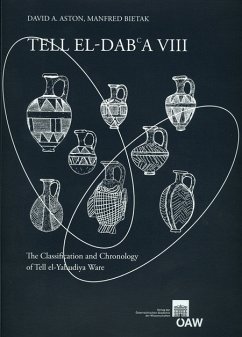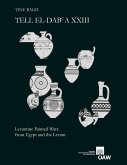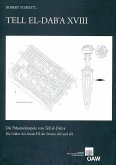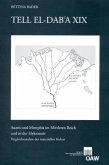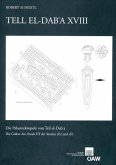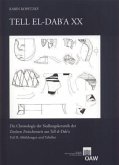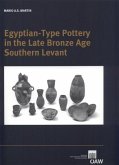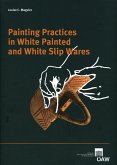Dieser Band beschäftigt sich mit der so genannten Tell el-Yahudiyeh Ware - schwarze Gefäße mit eingeritzter Dekoration, die während der Mittelbronzezeit im ganzen östlichen Mittelmeerraum verbreitet war. Im Wesentlichen handelt es sich zwar um einen Band der Tell el-Dabca Grabungsreihe, er bietet aber viel mehr als nur ein Verzeichnis der in Tell el-Dabca getätigten Funde dieser Warengruppe. Der Band beginnt mit einer Übersicht über die bisherigen Forschungen im Bereich dieser Keramikgruppe, wobei ersichtlich wird, dass das letzte maßgeblich mit dieser Thematik befasste Nachschlagewerk vor mehr als dreißig Jahren erschienen ist. Selbstverständlich sind in den dazwischen liegenden drei Jahrzehnten noch viele derartige Gefäße gefunden worden, unter anderem auch fast 700 Stück in el-Dabca. Der zweite Buchabschnitt beschäftigt sich mit einer typologischen Erörterung aller den Verfassern bekannten Tell el-Yahudiyeh Gefäßen. Diese sind sowohl chronologisch als auch geographisch, von ihrem jeweiligen Ursprung in der Levante bis zu ihrer Verbreitung durch den ganzen östlichen Mittelmeerraum, geordnet. ... This volume deals with the so-called Tell el-Yahudiyeh ware - black vessels with incised decoration - that is found throughout the Eastern Mediterranean regions. This type of pottery dates to the Middle bronze Age. This volume is part of the Tell el-Dabca excavation series, but it is more than a mere catalogue of the el-Dabca finds. The monograph opens with a review of previous research into this type of pottery. The last major reference work to deal with the topic appeared more than thirty years ago. Naturally, in the intervening three decades many more vessels of this type have come to light, including nearly 700 from the el-Dabca site alone. The second section of the book is devoted to a typological discussion of all Tell el-Yahudiyeh vessels known to the authors. These are arranged both chronologically and geographically, starting from their origins in the Levant and continuing to their widespread use throughout the Eastern Mediterranean. This is the first time that a chronological overview has been attempted. It has shown that there are several development threads, including Early Palestinian, Levanto-Egyptian, Late Palestinian and Late Egyptian groups. Each type of vessel is described in detail and accompanied by a map showing where examples have been found. The third and most important section comprises an in-depth catalogue of all 699 vessels that have been found at Tell el-Dabca. The stratigraphic context of these vessels is well documented, which helps not only to date the various types of Tell el-Yahudiyeh vessels, but also allows close correlations to be drawn between all sites where such vessels have been found. Indeed, the fine stratigraphy of Tell el-Dabca, which has been verified at a number of sites in the Eastern Mediterranean, allows Tell el-Yahudiyeh ware to be used as fine datum lines for establishing the relative chronology of the sites where it is found. A conclusion is followed by three chapters providing details about the Tell el-Yahudiyeh vessels that have been found at Ashkelon, Beth Shan and Tell 'Arqa. These three contributions, by L. Stager and R. Voss, A. Meier and R. Mullins, and H. Charaf and M. Ownby respectively, compare northern vessels to those from Tell el-Dabca. While this volume will be of particular interest to specialists in Ancient Egyptian and Near Eastern ceramics, the ability to closely date this ware also means that the volume will also be of use to archaeologists working in Egypt, the Near East, Cyprus and the Aegean, as well as anyone attempting to provide datum lines between different sites in these areas.
Dieser Download kann aus rechtlichen Gründen nur mit Rechnungsadresse in A, B, BG, CY, CZ, D, DK, EW, E, FIN, F, GR, HR, H, IRL, I, LT, L, LR, M, NL, PL, P, R, S, SLO, SK ausgeliefert werden.

